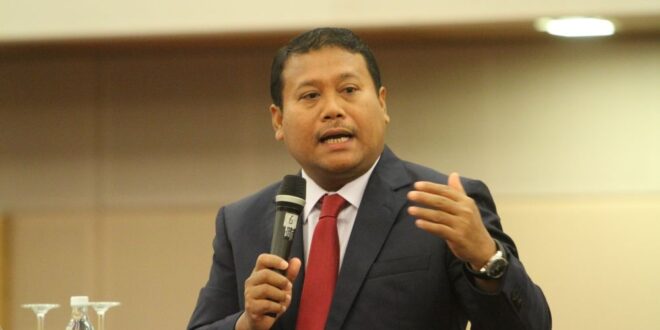PUTRAJAYA: The Omnibus Act is expected to be enacted this year to allow data sharing and cloud storage among government agencies, said the Economy Ministry secretary-general.
Datuk Nor Azmie Diron on Tuesday (Jan 2) said the implementation of data integration from every government agency needs to be supported through strong and sustainable data sharing legislation.
According to him, each database is subject to relevant regulations and acts, causing difficulties in data sharing between agencies.
“Some of the existing databases are more in silos and non-interoperable with each other. This situation complicates the sharing and integration of data and causes the Padu data coordination process to take a long time,” he said in the opening speech in conjunction with the launch of the Central Database Hub (Padu) here on Tuesday.
To address the challenge, Nor Azmie said ongoing engagement sessions at various levels, including by Economy Minister Rafizi Ramli and Chief Secretary to the Government Tan Sri Mohd Zuki Ali, were held.
A memorandum of understanding was also signed with related agencies to enable data sharing, he added.
“Security risks and classified information leaks are also often raised by various parties. Therefore, data and cyber security aspects are also given serious attention through the strengthening of system development as well as strategic cooperation with all relevant parties,” said Nor Azmie.
Meanwhile, he said, the development of Padu will go through several phases that also involve the collection of administrative data for the development of Pa,du which is focused on the ministries and agencies of the federal government that have their respective databases in the first phase.
Nor Azmie said that so far, most agencies at the federal level, including the National Registration Department, the Public Service Department, the Inland Revenue Board and Tenaga Nasional Bhd, have agreed to supply data.
“Padu also needs some important information from the state government and local authorities.
“Based on the digital gap that exists, especially in rural and interior areas, we expect there will be some people who do not have access to Internet facilities. This matter has been taken into account in the planning of the implementation of Padu through the provision of special counter services close to where they live each,” he added.
For now, registration can be done at the State Operations Office of the Malaysian Statistics Department and the Digital Economy Centre (Pedi), and a special task force will also be created to help individuals who are in remote areas and do not have Internet access.
“This team will be equipped with Starlink services to enable registration to be done online,” said Nor Azmie. – BK
 BeritaKini.biz Berita Viral Terkini di Malaysia
BeritaKini.biz Berita Viral Terkini di Malaysia





